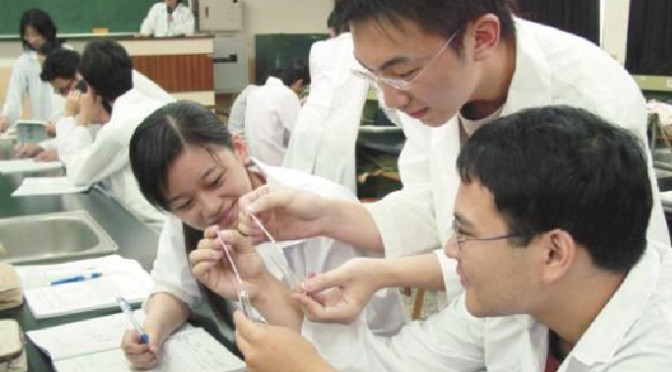The Office of Academic Affairs is responsible for carrying out the educational administrative affairs of KMU. It is comprised of the Division of Admissions &Student Recruitment, Division of Registration and Curriculum, Division of Graduate Academic Affairs, Division of Learning Enhancement, and Division of Teaching Development.
KMU seeks to enroll intelligent and motivated students of high character with diverse talents and backgrounds who can benefit from the school’s program, and whose talents and interests can contribute to the school as a whole. We are also developing cloud learning service platform and providing new and innovative online learning service for our students.
In 2011, the Division of Learning Enhancement and Division of Teaching Development was founded to bring the “outcome-based” learning and teaching into our educational programs, and established an online ”course and advisor evaluation system” for students to give feedback to the instructors about the courses.
For the past 8 years, KMU carried out the ‘Teaching and Learning Excellence Program” ,which was funded by the Taiwan Ministry of Education to encourage universities to encompass a more diversified curriculum to adequately collaborate with the rapid societal changes, and honored the” paragon university “in 2013.
The Center for Faculty Development and Teaching Resource (CFDTR) is established to promote university-wide faculty teaching and professional development across a broad spectrum of professional activities. The mission of CFDTR includes an annual teaching workshop to provide a forum for experts within and outside the university, along with the recognized outstanding teachers, to share teaching methods, teaching experiences, and insights with all other instructors. CFDTR also establishes a comprehensive management and evaluation mechanisms for those qualified teaching assistants by providing advance training courses and continuing education.
Teaching Development
CFDTR provide a wide range of ‘Peer Growth Group’ that support teaching professional achievement (i.e. teaching, research, and clinical approaches), skill building (e.g. innovative new teaching technology) and career planning and development. We also set-up five teaching dimensions to reach goals of peer groups: curriculum design, teaching methods, teaching materials, production and use of classroom management, teaching evaluation. We organize peer groups through a specific topic, the discussion of thinking of teachers from different areas of expertise, and enhance teachers the opportunity to learn from each other, in order to stimulate new thinking and enrich the career field.
For those who did not reach the required standard level on the teaching evaluation or faculty performance evaluation, meetings of support groups are set-up to discuss improvement strategies including organizing teaching and research in counseling groups, matching appropriate mentors, needs assessment of teaching or research etc. To assist in new or junior faculty members, the CFDTR holds orientation events to provide resources for faculty and arranges mentors to share their expertise and enrich their senior colleagues with their experiences. The CFDTR awards faculty who is recognized as excellent teaching accomplishments annually. Future aims of CFDTR are to establish (1) ‘The Indicator for Evaluation of Teacher’s Teaching Ability’, which will be the indicator for evaluating and selecting the excellent teaching teachers, and (2) ‘The Academy of Outstanding Teacher’ of the Kaohsiung Medical University to provide the heritage of teaching experience and guidance and help new faculty.
Teaching Resources
To enrich faculty development through a culture of collaboration, the study group program is designed to provide support and a context that allows faculty to share their expertise and enrich their experience with each other. In collaboration with a supportive group of equally committed colleagues, teachers are given the opportunity to extend their expertise in teaching and instructional technology.
CFDTR regularly holds training certification courses for teaching assistant and establish a school-based teaching assistant human resource base. Teachers can apply for teaching assistants, who can assist in teaching content/material updates, the classroom discussion, laboratory courses, PBL or after-school tutoring. Through those qualified teaching assistants, teachers can improve teaching quality and also provide student better learning environments.
The Development of the Clinical Skill Center
The establishment of the Clinical Skill center and Standard Patient (SP) Training programs enhance the teaching of clinical skill and improve learning efficiency. The center carries innovative technology and equipment. Through virtual simulation training, the students’ clinical skill can thereby be improved. To detect learning effectiveness of students’ clinical skills, KMU builds 24 OSCE (Objective Structured Clinical Examination) assessment classrooms, as well as configures a standardized electronic radio with recording equipment and the variety of software and hardware facilities. By the objective assessment of the OSCE and SP who plays patient roles with a variety of symptom, clinical personnel can foster their problem-solving ability, attitude, communication skills to enhance clinical skills, and the importance of the cooperation of the medical team.






